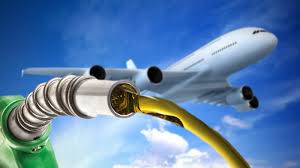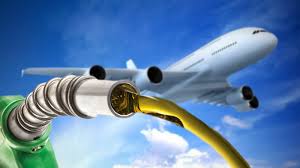
Markets for aviation-related fuels around the world were in a state of flux as several countries increased border security to fight the latest Omicron coronavirus strain, causing travellers to reconsider their travel plans.
According to an earlier report by the International Energy Agency, the demand for jet fuel was the most lagging component in the oil industry as the Agency predicted it to rise by 550,000 barrels a day to 5.9 million barrels per day in the fourth quarter of the current year.
Omicron however, on contrary, currently represents the greatest threat to jet fuel demand. Hong Kong has tightened entrance restrictions for non-residents of various countries, making it the first country to follow similar restrictions imposed by Israel and Japan for international travellers.
Due to the new variant, Britain and Australia have also imposed stricter requirements for all entry points with hundreds of thousands potential travellers contemplating postponing or cancelling their travel plans because of the tighter restrictions.
“The main risk with the new variant is that it could lead to the reintroduction of more extensive restrictions on flights during the winter months and thereby reducing the current demand for jet fuel in the world which is at about 6 million barrels per day," energy consultancy FGE wrote in a report.
Earlier in the week, Asian Jet Fuel refining rates dropped to $6.92 per barrel, the lowest level in over two months. At the same time, the front-month time spread for the aviation fuel in Singapore changed to a contango, for the first time since the end of September.
"Current jet demand levels are just 1 mb/d above last winter, when cases and hospitalizations were far higher and before any widespread vaccinations," Goldman Sachs analysts said in a November 26 note.
"While a worst case outcome could be a return to last winter's levels, 0.5 mb/d downside to our current base-case until Q2 of 2022 would be a conservative assumption given what we know at present."
Global airlines are striving to mitigate the impact of the new version on their networks after most of them have been struggling since last year's decline in air traffic caused by the suspension of the bulk of long-haul international flights.
"In total, 2.4% of scheduled (global airline) capacity has been removed for the next four months," aviation data firm OAG said.
"But it is too soon to say whether this is due to slightly weaker demand than expected, or an early response by some airlines to the prospect of the Omicron variant of the COVID-19 virus causing a return to border restrictions for international air travel."
The new coronavirus variant has clouded the hopes for a the new coronavirus variant in the short term.
"Now it's like the snake and ladder boardgame. I think Vaccinated Travel Lanes (VTL) would be important to keep the momentum in the aviation industry," a Singapore-based jet fuel trader was quoted in a report as saying.
"Definitely, there's no hope to see a speedy recovery, which was expected before this Omicron variant."
(Source:www.reuters.com)
According to an earlier report by the International Energy Agency, the demand for jet fuel was the most lagging component in the oil industry as the Agency predicted it to rise by 550,000 barrels a day to 5.9 million barrels per day in the fourth quarter of the current year.
Omicron however, on contrary, currently represents the greatest threat to jet fuel demand. Hong Kong has tightened entrance restrictions for non-residents of various countries, making it the first country to follow similar restrictions imposed by Israel and Japan for international travellers.
Due to the new variant, Britain and Australia have also imposed stricter requirements for all entry points with hundreds of thousands potential travellers contemplating postponing or cancelling their travel plans because of the tighter restrictions.
“The main risk with the new variant is that it could lead to the reintroduction of more extensive restrictions on flights during the winter months and thereby reducing the current demand for jet fuel in the world which is at about 6 million barrels per day," energy consultancy FGE wrote in a report.
Earlier in the week, Asian Jet Fuel refining rates dropped to $6.92 per barrel, the lowest level in over two months. At the same time, the front-month time spread for the aviation fuel in Singapore changed to a contango, for the first time since the end of September.
"Current jet demand levels are just 1 mb/d above last winter, when cases and hospitalizations were far higher and before any widespread vaccinations," Goldman Sachs analysts said in a November 26 note.
"While a worst case outcome could be a return to last winter's levels, 0.5 mb/d downside to our current base-case until Q2 of 2022 would be a conservative assumption given what we know at present."
Global airlines are striving to mitigate the impact of the new version on their networks after most of them have been struggling since last year's decline in air traffic caused by the suspension of the bulk of long-haul international flights.
"In total, 2.4% of scheduled (global airline) capacity has been removed for the next four months," aviation data firm OAG said.
"But it is too soon to say whether this is due to slightly weaker demand than expected, or an early response by some airlines to the prospect of the Omicron variant of the COVID-19 virus causing a return to border restrictions for international air travel."
The new coronavirus variant has clouded the hopes for a the new coronavirus variant in the short term.
"Now it's like the snake and ladder boardgame. I think Vaccinated Travel Lanes (VTL) would be important to keep the momentum in the aviation industry," a Singapore-based jet fuel trader was quoted in a report as saying.
"Definitely, there's no hope to see a speedy recovery, which was expected before this Omicron variant."
(Source:www.reuters.com)














